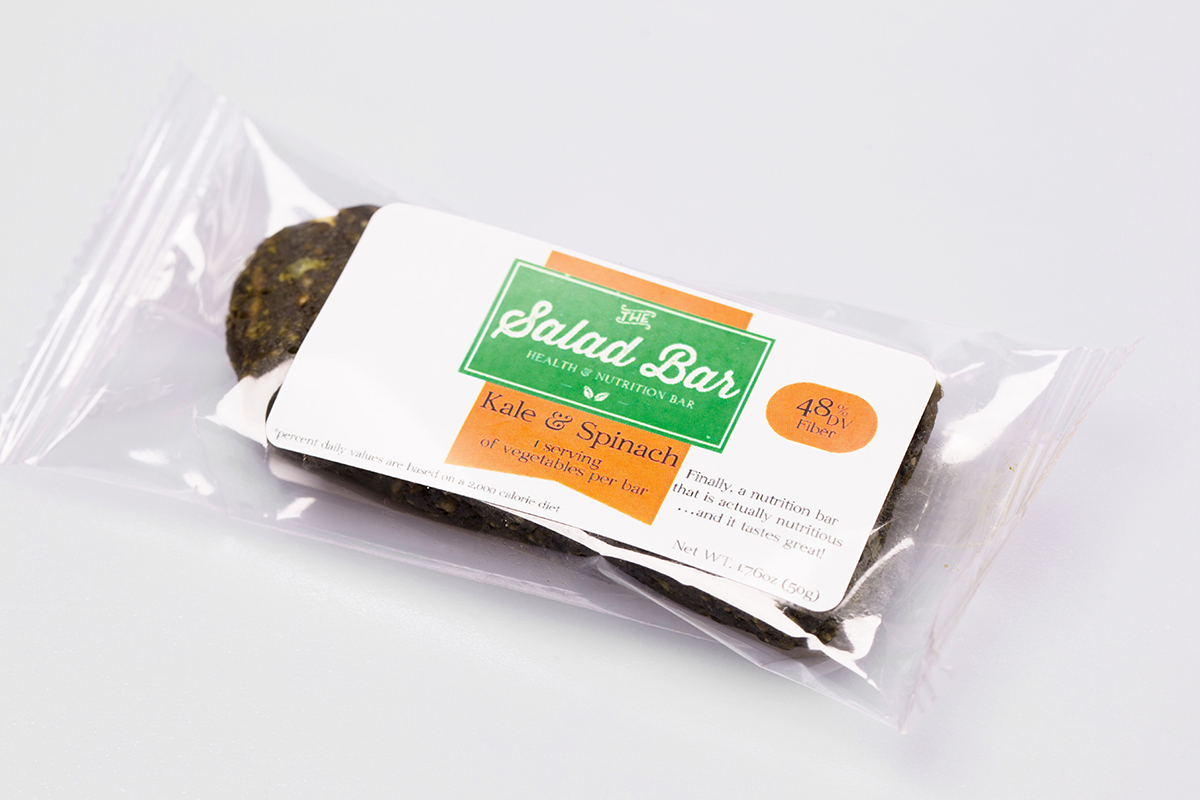Harvard Business School Students Are Transforming the Concept of a Salad Bar
We get it: A vegetable-based nutrition bar isn’t exactly a craveable item. But three Harvard Business School students are looking to change that.
“[We were] looking at the options and thinking, ‘Why can’t we have a bar that’s lower sugar, higher fiber, and vegetable-based?'” explains cofounder Eleanor Foote. “We started looking at the market and really saw a gap and an opportunity to make a bar that’s vegetable-based so people can be healthy on the go.”
Foote, along with cofounders Emily Schofield and Rob Cochran, began experimenting in her Cambridge kitchen earlier this year. After bringing on a food scientist and manufacturer, The Salad Bar’s first flavor, kale-spinach, was born.
Operations have now expanded to include a carrot flavor, and both bars contain a full serving of vegetables, seven grams of protein, 48 percent of daily fiber requirements, and only five grams of sugar. (For comparison, Clif Bars have about 22 grams.) They are sold online and at select Boston retailers for $3 each.
Foote, Cochran, and Schofield are running the company while finishing business school, but Cochran says that’s actually an asset. “It’s really a great time to start working on these things,” he says. “You get people with similar interests in health and nutrition, and then the school provides resources about how we think about scaling the company and branding and all of these things.”
And while the nutrition bar market is incredibly saturated, Foote says The Salad Bar is unique enough to succeed, likening it more to the exploding juice trend than to traditional bars. “We eat a lot of bars, but find there’s only so many nuts and fruits you want to eat in one day,” Foote says. “I think it is a crowded space; you have to differentiate, and we’re hoping to build loyalty from people who are frustrated by the current options.”



